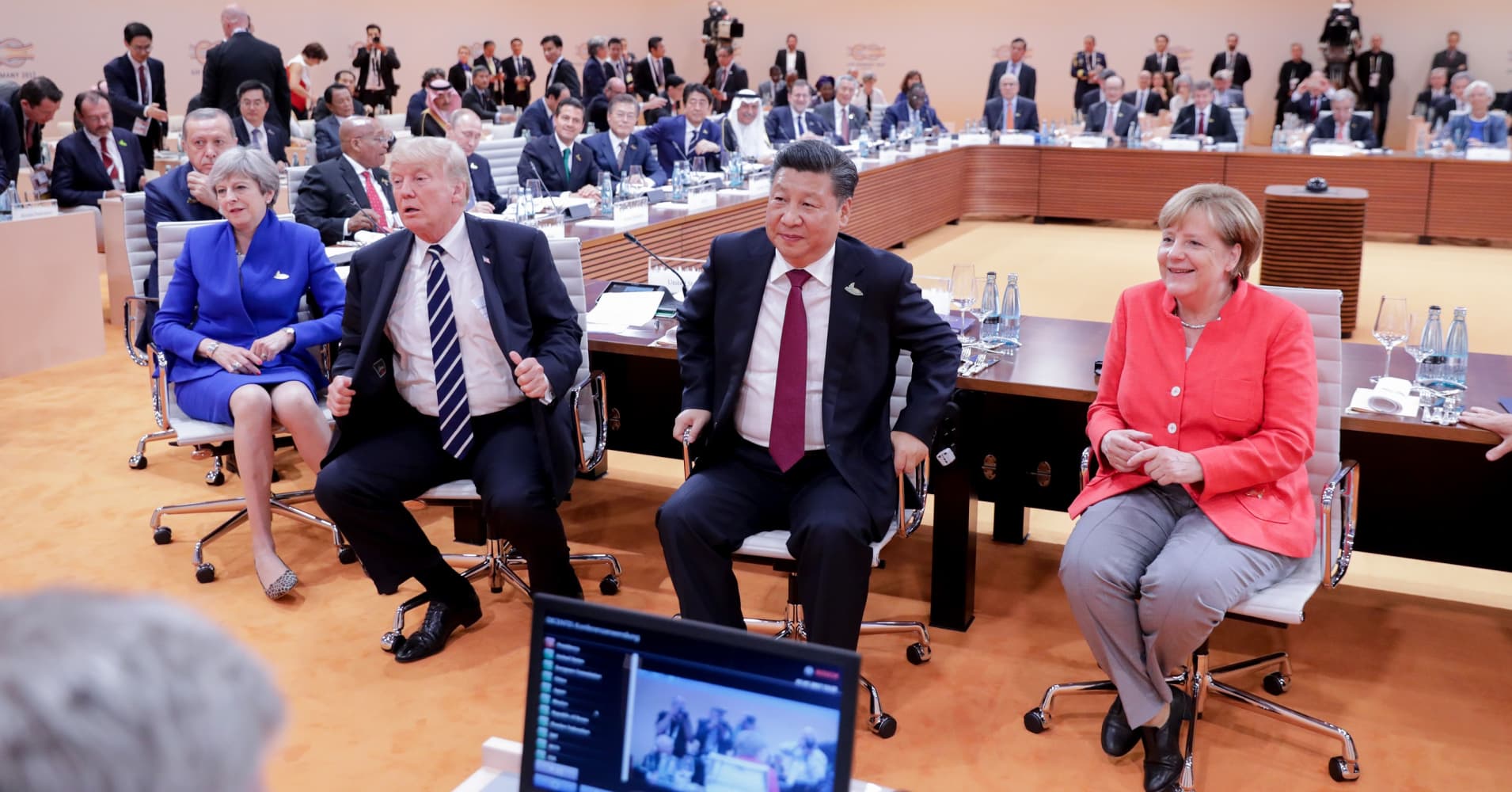
Europe and the U.S. are clashing over Huawei's role in the future of 5G.
While Donald Trump's administration has tried to pressure allied countries, including those in Europe, to ban the Chinese firm from being included in the rollout of the next generation of mobile networking technologies, nations including the U.K. and Germany aren't listening.
Germany's 5G spectrum auction began on Tuesday — a process in which carriers bid for certain radio frequencies in order to provide the new version of high-speed mobile internet.
The U.S. alleges that Huawei's networking equipment could be used for espionage by the Chinese government. Huawei has repeatedly denied that it poses any risk and said it would never allow Beijing to get its hands on customer data. Experts are skeptical, however, about Huawei's assurances because Chinese national security laws appear to compel companies operating in the country to comply with all government requests for such info.
What's at stake is control over what experts describe as one of the most important technologies in recent times. 5G is not just about making mobile internet faster: It will underpin other technology from driverless cars to so-called smart cities. The U.S. wants to be a leading player — and so does China.
Despite Washington's protests, Germany is not excluding Huawei from becoming part of its national 5G infrastructure. German Chancellor Angela Merkel said earlier this month that the country will define its own security standards.
But its not just Germany that is defying the U.S. Italy's government has said that it won't ban Huawei from its telecommunications industry, saying there is no proof of any security threat.
And in the United Kingdom, intelligence officials said that any risks posed by Huawei can be mitigated, according to an FT report in February. Even individual carriers have expressed their concern over excluding Huawei from the 5G rollout. U.K.-headquartered carrier Vodafone said banning Huawei could cost it millions of pounds and slow the rollout of 5G.
Experts say that while the American rollout of 5G would not be affected by a Huawei ban, Europe could suffer. Nikhil Batra, senior telecommunications research manager at IDC said European carriers' businesses have struggled compared to those in the U.S., so they want the cheapest possible deal for 5G equipment — something that Huawei can provide.
"When you look at the industry as small as network equipment providers, excluding Huawei will have a big impact on the industry. If I am going from three major vendors to two major vendors, competition decreases, prices will increase as a result. A lot of countries, including specific telcos, are looking at Huawei as a better-cost option," Batra told CNBC on Thursday.
The two other major players for Europe are Nokia and Ericsson.
"Traditionally, Huawei has been playing a lot on the cost in terms of being competitive versus the other two major players," Batra added.
European countries, Batra said, have not seen hard evidence regarding the allegations made by the U.S. and that is one reason why they are not following America's lead. Critically, the U.S. argument is that Huawei's technology could allow for spying — not specifically that the company has already performed intelligence gathering for Beijing.
And it's not just European countries butting heads with the U.S. Thailand, a U.S. ally in Asia, launched a 5G test bed with Huawei in February. India, meanwhile, is looking for a way to exclude Huawei from some parts of its 5G infrastructure, but it is not seeking an entire ban, according to a report by the Nikkei Asian Review earlier this month.
But the U.S. is not budging on its stance against Huawei and the country's networks are backing it.
AT&T CEO Randall Stephenson claimed on Wednesday that Huawei is making it tough for European carriers to drop Huawei as their supplier because the company is an important part of their existing 4G networks.
"If you have deployed Huawei as your 4G network, Huawei is not allowing interoperability to 5G — meaning if you are 4G, you are stuck with Huawei for 5G," Stephenson said.
The AT&T chief said the U.S. government should better-explain its issue with Huawei. The biggest risk is not that the Chinese government might listen to conversations or mine data, it's that 5G will be such a critical infrastructure and governments should be cautious about who the vendors are, he said.
"If that much of infrastructure will be attached to this kind of technology, do we want to be cautious about who is the underlying company behind that technology? We damn well better be," Stephenson said.
Huawei declined to comment on Stephenson's remarks when contacted by CNBC.
via IFTTT
No comments:
Post a Comment